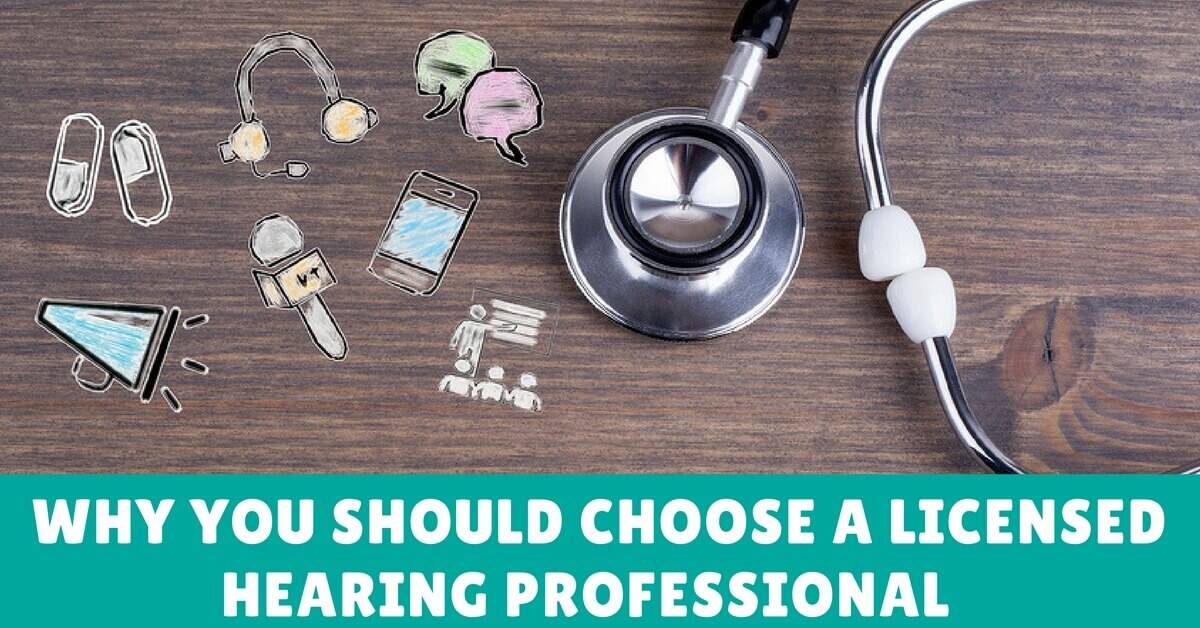
Over the counter hearing aids are coming soon to pharmacies near you. But don’t get too excited until you’ve had a chance to consider all the facts. Hearing aids from licensed hearing professionals are advanced pieces of technology that are guaranteed to be top-quality, and are often custom molded to fit your unique ear. While an over the counter hearing aid might be less costly, they’re aren’t made especially for you. Are you sure you want a one size fits all hearing device for a highly complex sense such as hearing?
Treating Hearing Loss on Your Own
Over the counter hearing aids have received a lot of hype. It’s true that they would allow those with mild or moderate hearing loss to treat hearing loss on their own. Like buying reading glasses from the pharmacy, over the counter hearing aids may help to some degree, but can’t match the quality of professional hearing devices. These new over the counter devices would increase access to hearing assistance for those who need it, however this might actually do more harm than good in the long run.
Hearing professionals are worried that buying ill-fitting over the counter hearing aids that may not be working as they should will discourage people from seeking treatment for their hearing loss, choosing to live with hearing loss rather than visiting a professional for a more advanced hearing device.
It’s true that you know yourself better than anyone else, but hearing health involves more than your subjective experience. In fact, most people get used to the way they hear when their hearing abilities diminish, so it may be difficult to know the level to which you should restore your hearing.
One Arizona based hearing-aid dispenser summed it up by saying that “only 25 percent of consumers can accurately assess their degree of loss, and they don’t know if they have the loss in one or both ears.” Without a professional hearing assessment, self-diagnosis will be a challenge as you struggle to sift through the options on your own. Not only that, but hearing professionals also uncover other causes of hearing loss that you might not find on your own. Hearing loss due to illness, injury, infection or even just earwax buildup can be hard to detect, but can solve your hearing problems if identified and treated. You might not even need a hearing aid, but without visiting a professional you’d never know.
New Legislation
According to the Arizona Commission of the Deaf and Hard of Hearing, the option of over the counter hearing aids is the wrong way to go. They’ve been fighting against the Over-the-Counter Hearing Aid Act of 2017, in an attempt to keep hearing aids out of pharmacies. Michele Michaels is with the commission, and she assured us that their goal is the same.
“We want to increase access to hearing health care, and we want to increase the affordability of it. But this is not the way to go,” she states. The commission is recommending that hearing aids be covered by Medicare, rather than releasing inexpensive hearing aids to pharmacies.
Don’t Settle for Cheap
While the thought of spending less is appealing, remember that you get what you pay for. We know hearing aids are an investment, and Medicare doesn’t cover the costs. Settling for a cheap pair might save you a bit of cash, but you’ll pay of it in lack of programing, a reduced number of settings, and a one-size-fits all model, so you’ll still find yourself struggling to hear in many situations. Audiologist Tina Jessee puts it this way: “If cheap hearing aids changed lives, I would’ve been selling them the last 25 years. Good hearing aids are expensive because they come with services and counseling. To me, this would be like buying a pacemaker at Target.” Make a decision based on your hearing, not on your wallet.
On average, most Americans wait five to seven years before getting hearing aids! Think about all the conversations you miss out on during that time, the endless struggle to understand your grandchildren, and the constant strain to hear the TV.
While you think over the counter hearing aids could be the answer, weigh your options carefully. Over the counter hearing aids aren’t necessarily a good thing. Make the right choice, and don’t go it alone. Visit the nearest My Hearing Centers location, where our team is waiting to help you find the perfect hearing device. From a professional hearing assessment to a quality hearing aid and personalized fitting and consultations, you’ll be glad you chose the licensed hearing professionals.
